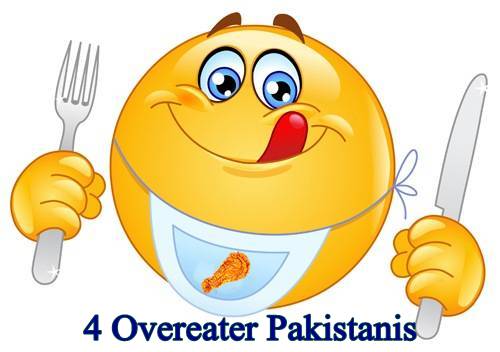Muslim scientists made innumerable discoveries, inventions and researches about architect, engineering, medicine, surgery, physics, chemistry, philosophy, astrology, geometry, mathematics and various other fields. They are founders of many branches of science and have written numerous books of science. They eliminated misconceptions from found in the ancient science theories. Many terms of today’s science are actually given by these Muslim scientists and researchers. Major fields of Muslim scholars, scientists and researchers were medical, chemistry, astronomy and architecture.
From vaccination to surgery and from parachute to windmill, the Muslims have given the world many innovations that we take for granted in daily life. Here is list of 20 great inventions of Muslim scientists.
PINHOLE CAMERA
ALGEBRA, TRIGONOMETRY AND NUMBERING SYSTEM
Algebra was named after al-Khwarizmi's book, Al-Jabr wa-al-Muqabilah, much of whose contents are still in use. The work of Muslim mathematicians was imported into Europe 300 years later. Algorithms, trigonometry, cryptology and writing style of numerals also came from the Muslim world.
SURGICAL INSTRUMENTS
Many modern surgical instruments are of exactly the same design as those devised in the 10th century by a Muslim surgeon called Al-Zahrawi. In the 13th century, a Muslim medic named Ibn Nafis described the circulation of the blood, 300 years before William Harvey discovered it. Muslims doctors also invented anesthetics.
PARACHUTE
A thousand years before the Wright brothers a Muslim astronomer and engineer named Abbas ibn Firnas made several attempts to construct a flying machine. Though he was not fully successful in flying but had given the concept of airplane and parachute.
SHAMPOO AND SOAP
Soap and shampoo was invented by Arab Muslims.
MINERAL WATER AND PERFUME
Jabir ibn Hayyan was a great Muslim chemist in 8th century. He invented many basic processes and apparatuses of chemistry which are still in use. He invented the perfume and pure water through distillation, filtration, evaporation and purification process.
CRANKSHAFT
Crank-shaft was created by a Muslim engineer Al-Jazari to raise water for irrigation. He also invented or refined the use of valves and pistons, devised some of the first mechanical clocks driven by water and weights, combination lock, and was the father of robotics.
ARCHITECTURAL INVENTIONS
WINDMILL
The windmill was invented in 634 for a Persian caliph and was used to grind corn and draw up water for irrigation. It was 500 years before the first windmill was seen in Europe.
VACCINATION
Children in Turkey were vaccinated at least 50 years before the West discovered it.
FOUNTAIN PEN
The fountain pen was invented for the Sultan of Egypt in 953 after he demanded a pen which would not stain his hands or clothes.
COFFEE
Coffee was originated from Kaffa, Ethiopia. By the late 15th century it had arrived in Mecca and Turkey from where it made its way to Venice in 1645. It was brought to England in 1650 by a Turk who opened the first coffee house in London. The Arabic qahwa became the Turkish kahve then the Italian caffé and then English coffee.
THREE-COURSE MEAL
Ali ibn Nafi Ziryab came from Iraq to Cordoba in the 9th century and brought with him the concept of the three-course meal - soup, followed by fish or meat, then fruit and nuts.
GLASSWARE
Ali ibn Nafi Ziryab also introduced crystal glasses which had been invented after experiments with rock crystal by Abbas ibn Firnas.
DEGREE AWARDING UNIVERSITIES
The first formal university was Al-Karaouine, founded in 859 by Fatima al-Fihri in Fes, Morocco. Upon the successful completion of course, this university granted them a certificate known as an “Ijaza”. Al-Azhar University was founded in Cairo (Egypt) in 970, and in the 1000s, dozens of universities were established throughout the Middle East. The concept of institutes that grant certificates of completion (degrees) spread into Europe through Muslim Spain, where European students would travel to study. The Universities of Bologna in Italy and Oxford in England were founded in the 11th and 12th centuries and continued the Muslim tradition of granting degrees to students.
CARPETS
Origin of carpets is Iran and nearby Muslim countries.CHEQUE
The modern cheque comes from the Arabic saqq. In the 9th century, a Muslim businessman could cash a cheque in China drawn on his bank in Baghdad.
SHAPE OF EARTH
500 years before Galileo, Muslim scholars revealed the truth that earth is spherical. They also calculated the circumference of the earth.
ROCKET AND TORPEDO
By the 15th century Muslims had invented both a rocket and a torpedo, and were being used by their militaries.
CHESS
Chess, into the form we know it today, was developed in Persia. From there it spread to Europe. Click here to read complete interesting story of Chess.
GARDENS
Muslims developed the idea of the garden as a place of beauty and meditation. The first royal pleasure gardens in Europe were opened in 11th-century Muslim Spain.






















